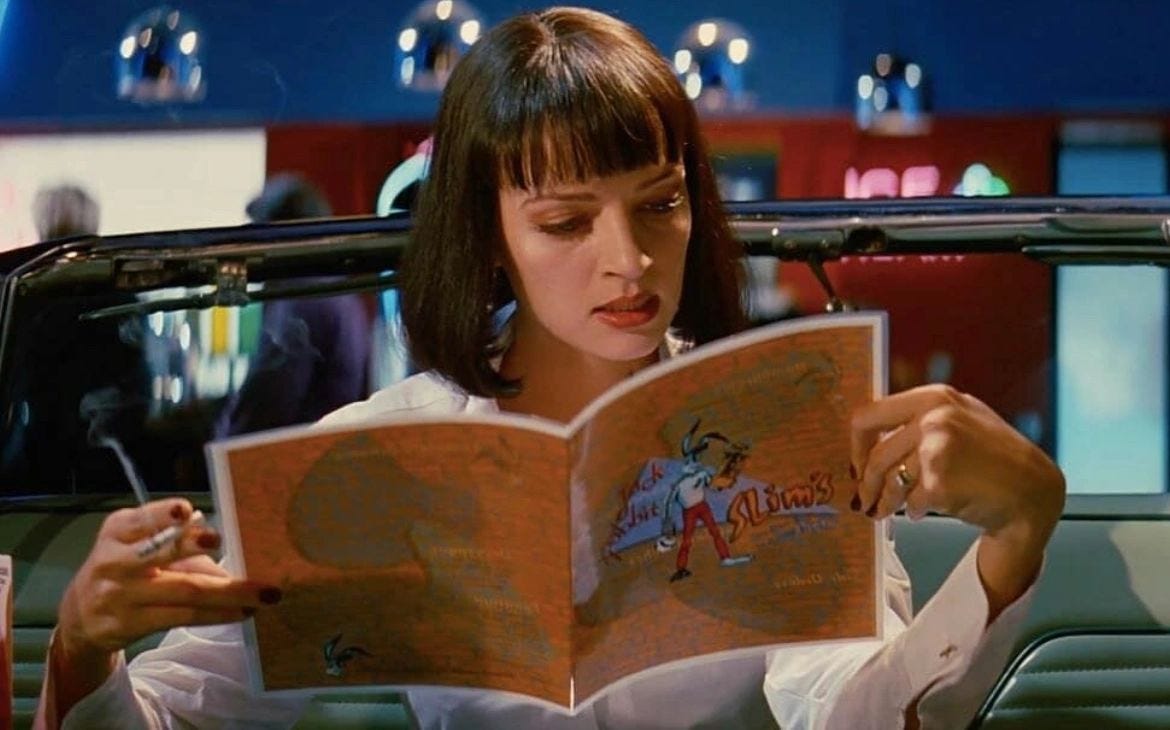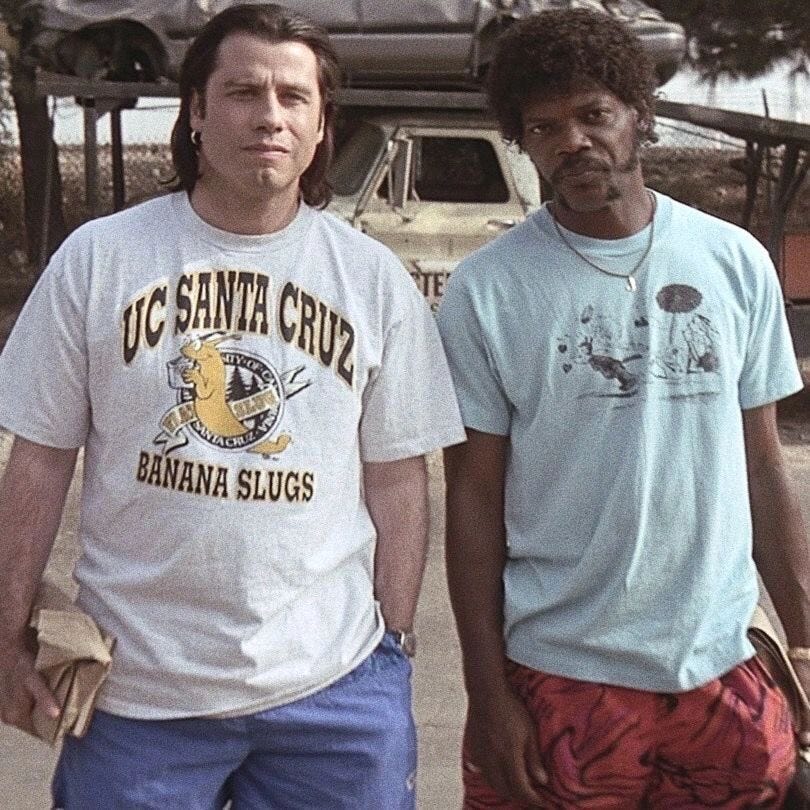Renowned as one of the greatest films of all time, ‘Pulp Fiction’ (1994), Written and Directed by Quentin Tarantino. What makes this film so great? Many things; the obscure and non-linear storyline, graphic violence, distinct characters, but its engine: Dialogue.
Quentin Tarantino’s arguably best quality of his screenplays is the dialogue. In Pulp Fiction, it serves as a cornerstone for the narrative structure and character development. Here, dialogue is not simply a means of conveying information, but a dynamic tool that shapes the atmosphere, and reveals the complexities of its characters while propelling the plot forward. Laced with witty pop culture references and philosophical ideologies, it creates a distinct and engaging cinematic experience.
One notable aspect of the dialogue is how it provides each character with their unique tone, which contributes to the distinct atmosphere of every scene. Very often, conversations between characters intertwine casual banter with intense discussions, making it unclear to viewers whether there is tension or humor between characters. This fusion is clear in the iconic “Royale with Cheese” scene where Jules and Vincent exchange trivial anecdotes about the differences between American and European culture while they are on their way to violent confrontation. This juxtaposition of mundane dialogue with impending danger creates a sense of unpredictability that keeps the audience engaged and unsure of what might happen next.
Tarantino uses dialogue as a vessel to explore the character’s fears, quirks, and aspirations. For example, the infamous: “Ezekiel 25:17” monologue delivered by Jules throughout the film serves as a turning point in his character arc, symbolizing his desire for redemption and internal transformation. Similarly, in conversations with Mia and Vincent, a mix of vulnerability and bravado, exemplifies their shared experiences and inner struggles. The consistency of depth in each dialogue scene makes each character ever more relatable and authentic.
Overall, Tarantino’s use of dialogue is the epitome of how the expository tool should be used in film. It should never be there to take up space in the script, but it has a purpose. It should shape the film’s tone, advance the plot, and delve into the psyche of the characters. Every Tarantino film has a narrative that stays compelling and memorable long after the credits roll, with a big thanks to the dialogue.





